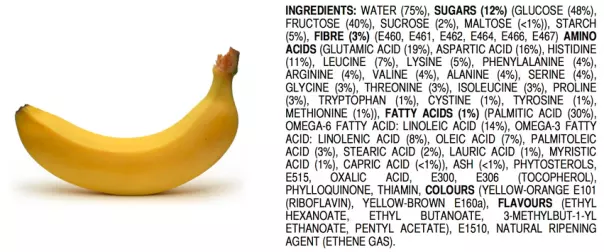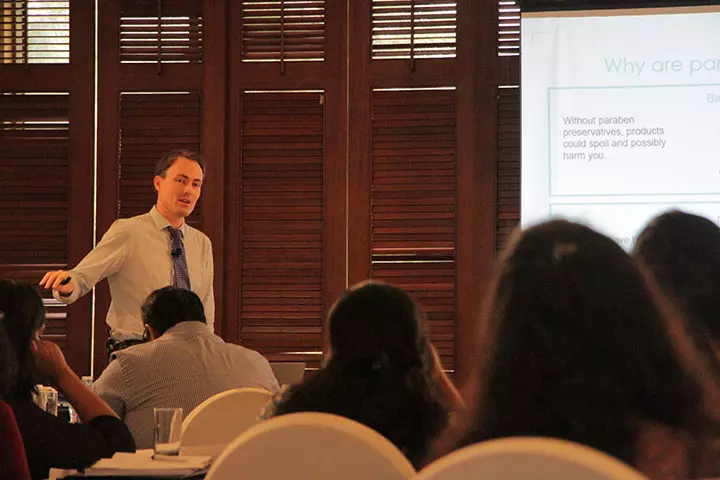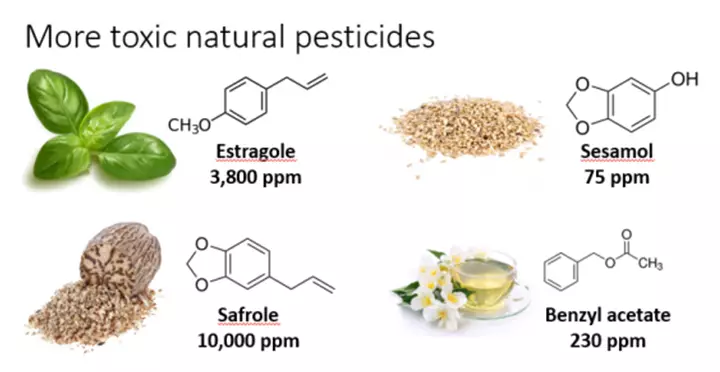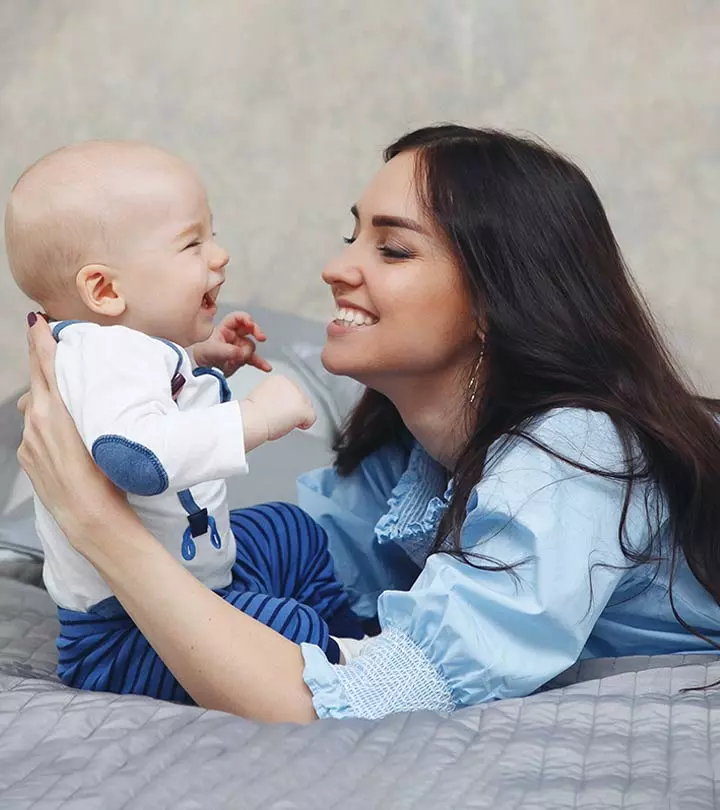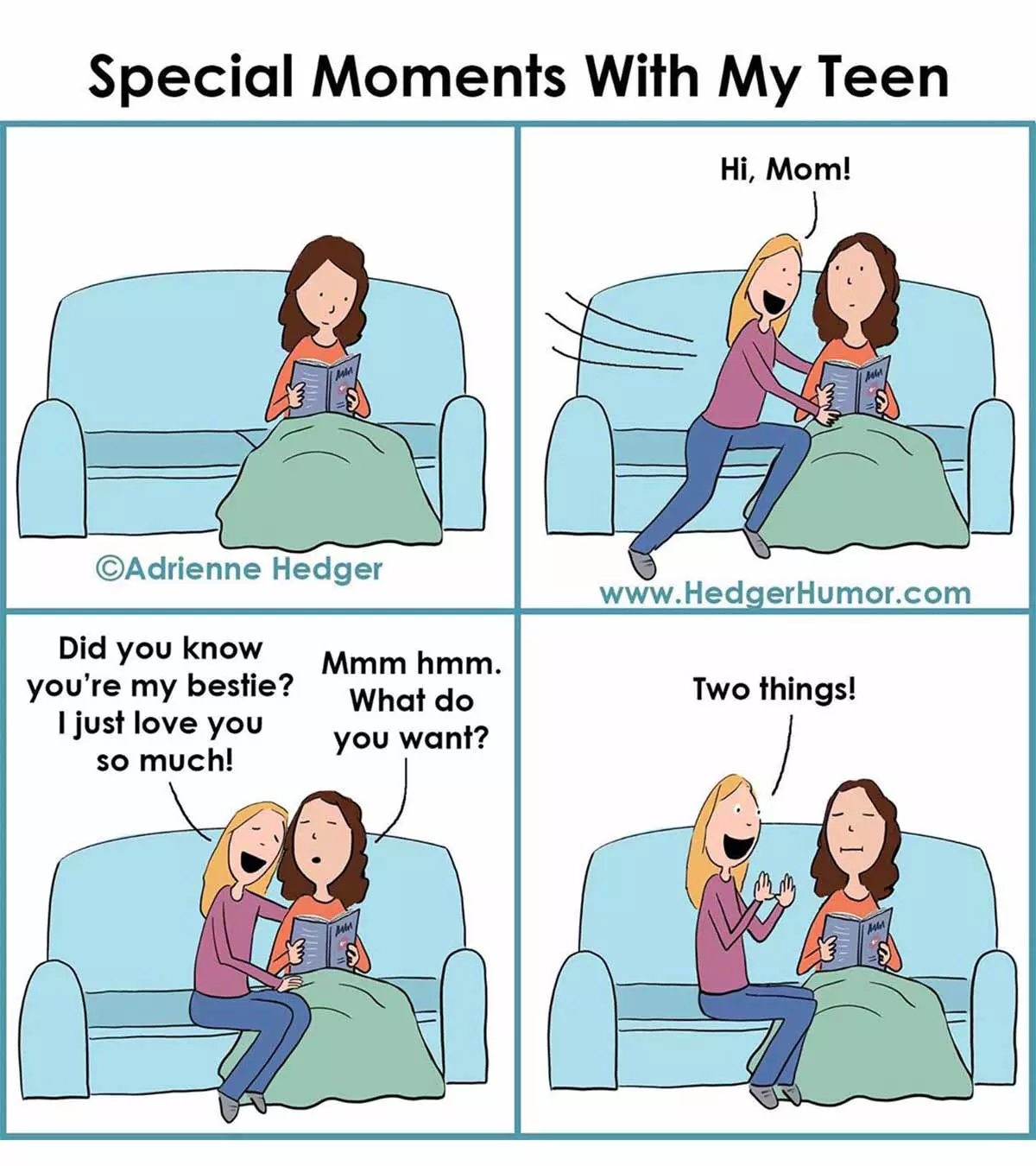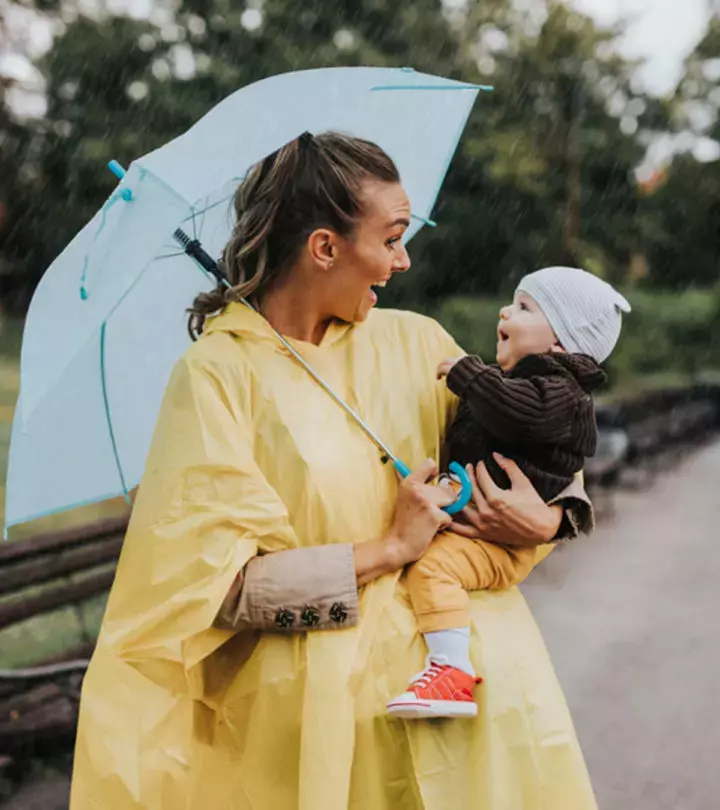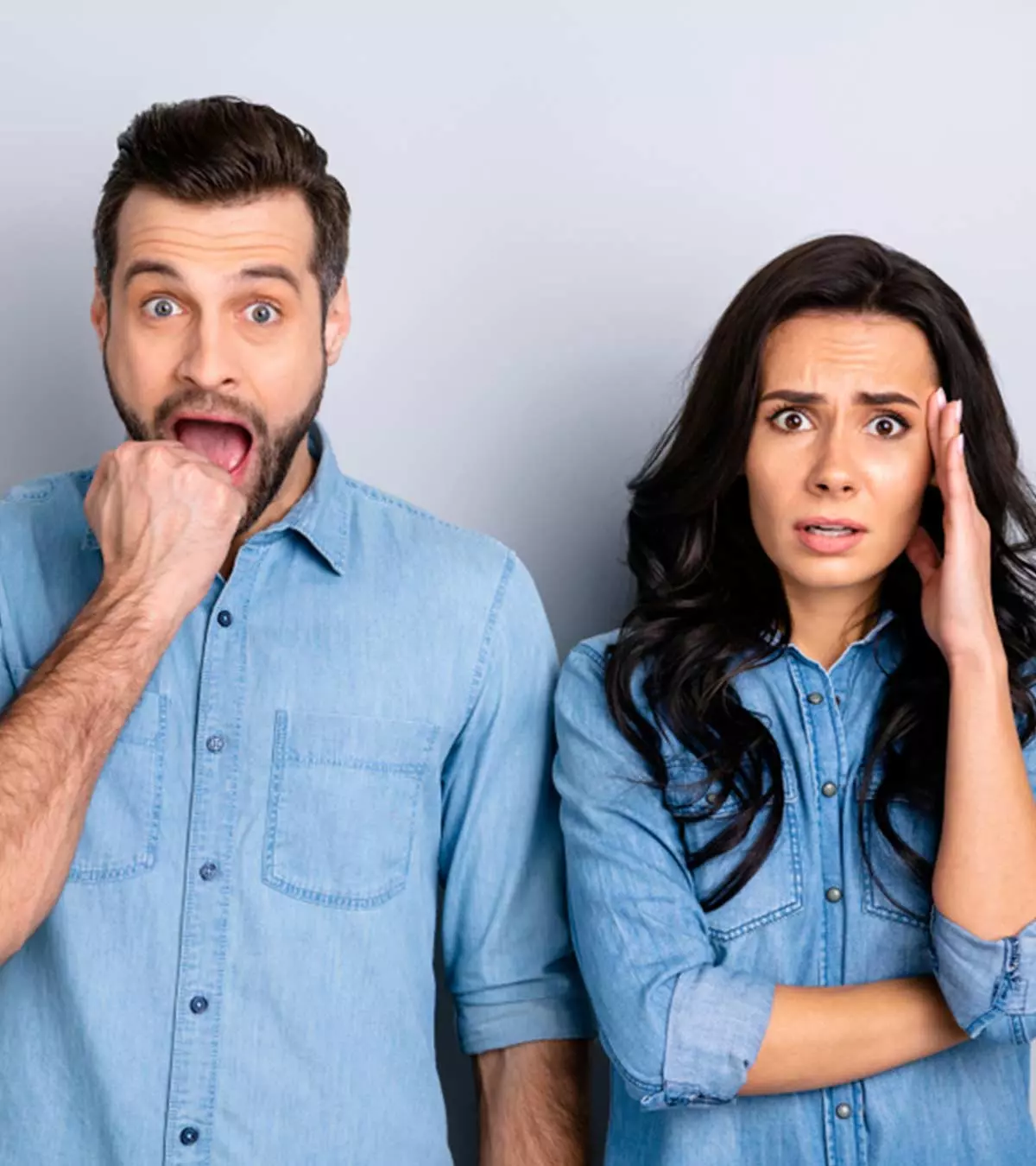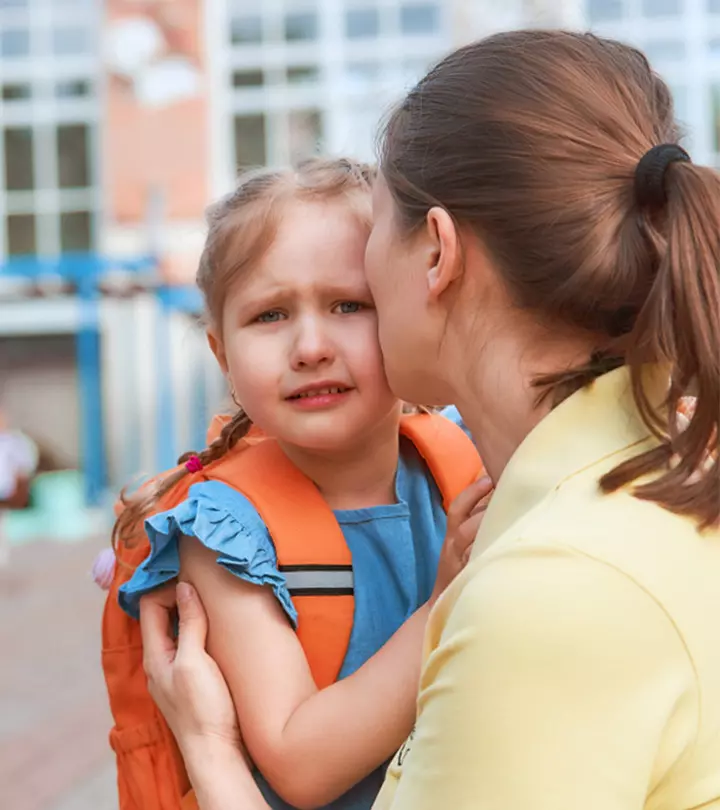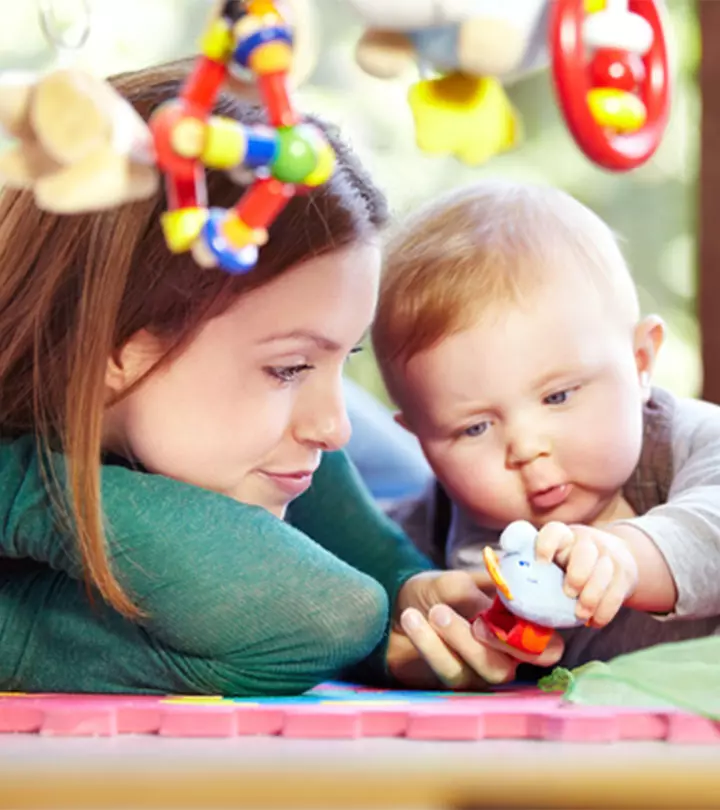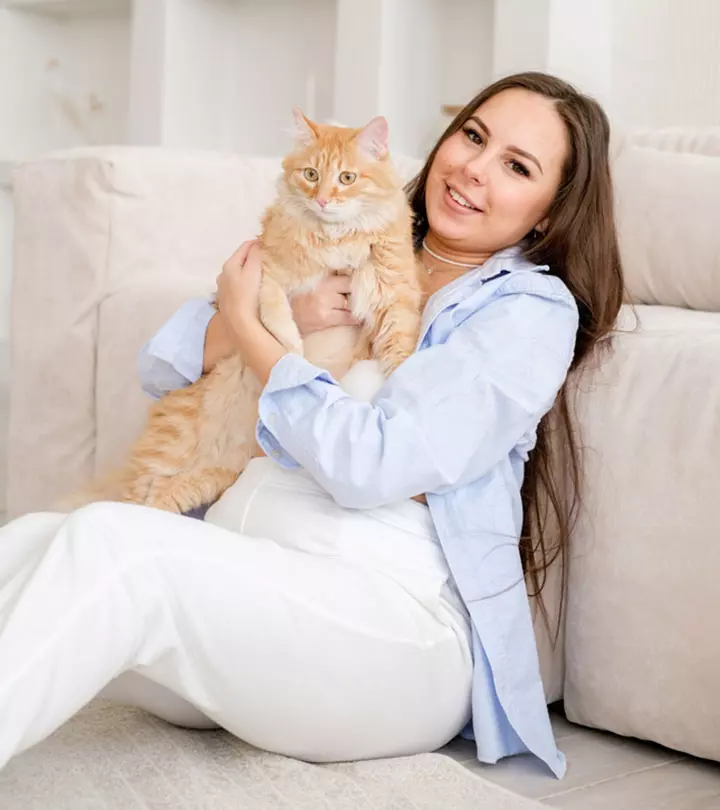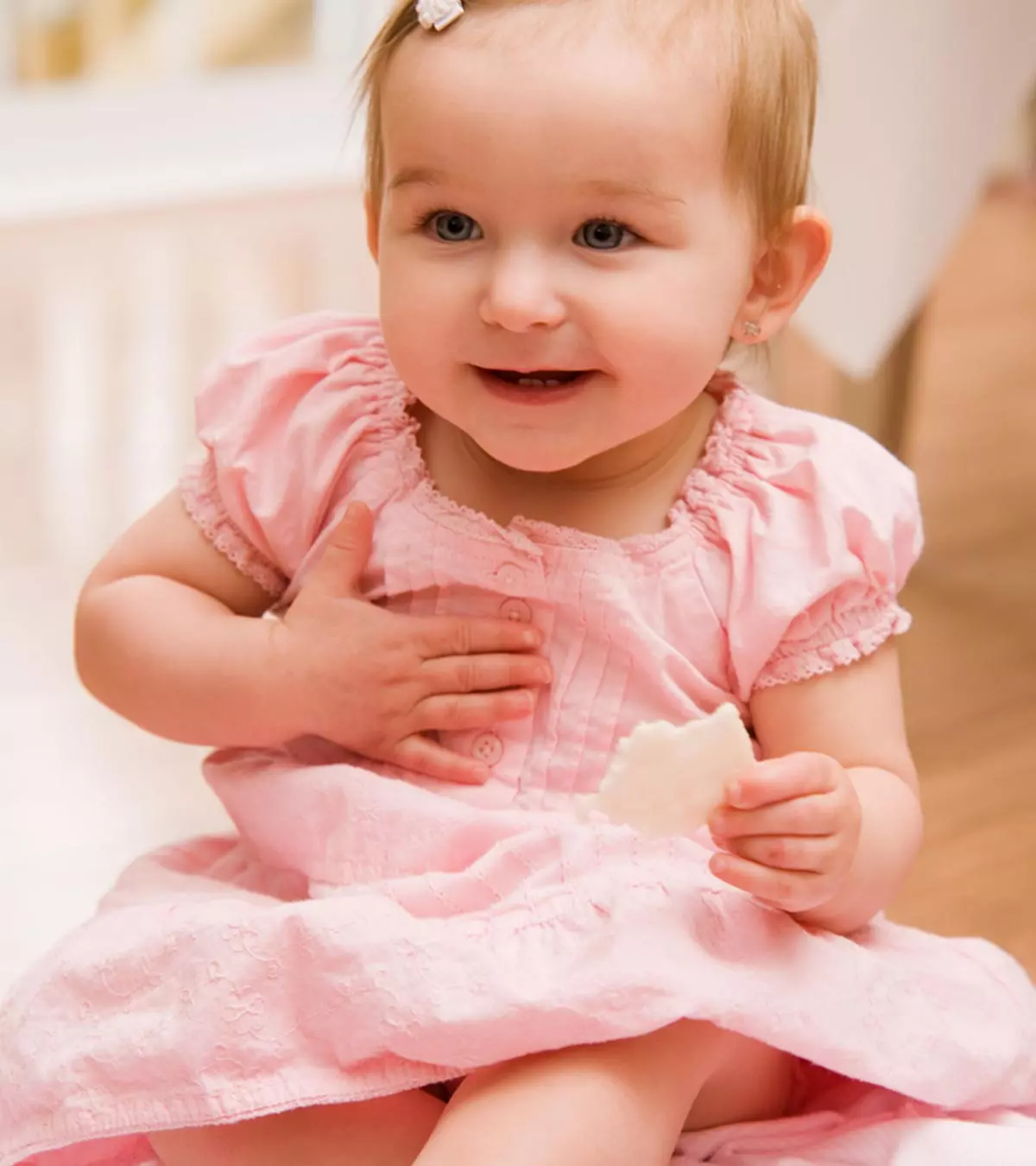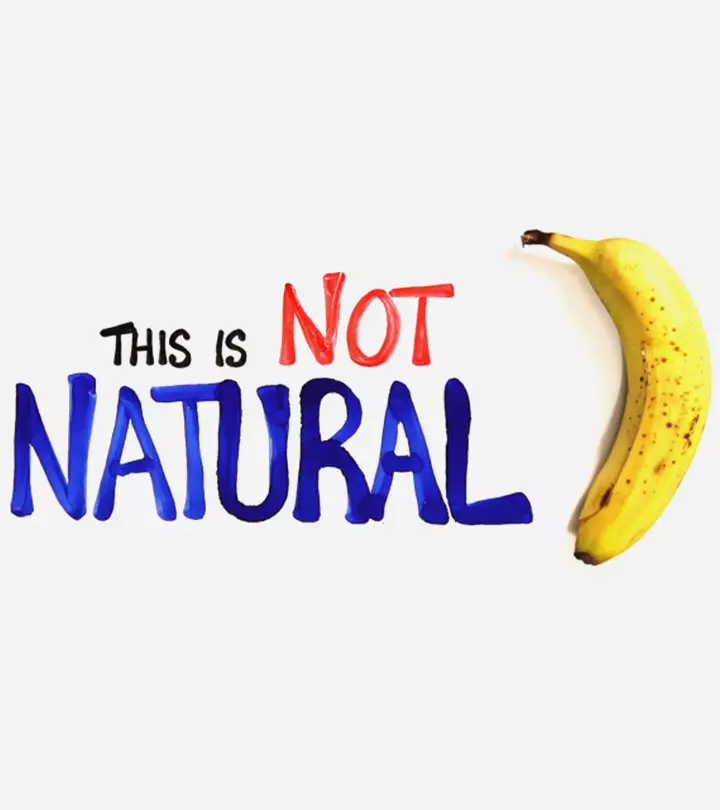

Image: James Kennedy
What is chemophobia? Hint: Most of us have it, and the number of people affected by it is only increasing by the day. It manifests in the way we moved from ‘chemicals laden’ products to ‘chemical-free’ products for us and our babies.
Got the answer? Yes, you are right. Chemophobia is defined as “irrational or excessive fear of chemicals”. It is the prejudice that we have developed, rather made to develop, over the years. The fear is so high that we willingly spend exorbitant money on natural and organic products – be it food or the cosmetics that we use in our daily life – to be safe from chemicals.
But have you ever realized that no matter how natural or organic the product is, you are still consuming chemicals? Yes, the water we drink and the fruits we eat all contain chemicals. Can we stop drinking water because it has chemicals in it? Sample this infographic, which shows the number of chemicals one naturally-grown banana can have:
Image: James Kennedy
Amazed at the details? If you have now decided to shun bananas and move on to other fruits such as apples or peaches, let me tell you they are also rich in chemicals. In fact, an apple contains the forbidden chemical formaldehyde (1). Three compounds in apple juice are carcinogenic (meaning they can cause cancer) while 132 more compounds are yet to be tested. Similarly, black pepper has shown to be causing cancer in rats (2).
What do we do now? Can we stop giving these foods to our children? And if we avoid natural products too, how do we ensure hygiene and healthy skin for our babies?
The fact is, toxicity does not lie in the chemicals per se but the dosage of it. For example, fluoride is not bad for us. We need it for strong teeth but high quantities of it would lead to mottled teeth. Vitamins A and D can also be harmful if we take them in high quantities.
“Toxicity is dose dependent and not ingredient dependent”, says James Kennedy, a chemistry teacher and a writer. Kennedy has been fervently defending the case of chemicals, and has, so far, written four books. The fifth book, Fighting Chemophobia, would be published by the end of this year.
At a workshop organized by Johnson & Johnson in Mumbai recently, Kennedy went into the details of the myth called ‘chemical-free’. Yes, he calls it a myth because nothing in this world is chemical-free, there are only natural chemicals and synthetic chemicals.
Similarly, organic products are not pesticide-free because the growers would use natural pesticides, which could be as harmful as the synthetic pesticides. Check this one to know how natural pesticides can also be harmful:
Image: James Kennedy
Kennedy says that chemicals are not harmful, but their usage determines whether they are safe or not. The factors that influence are:
- Subject or the user: A few glasses of wine are fine for an adult, but they are harmful for a baby. Here the safety of the chemicals depends on who is using them.
- Method of exposure: The way in which the chemicals are going into the body determines their safety. Drinking six liters of water is good for the body, but can you inhale six liters of water (say while swimming)?
- Dosage: Coming back to the dose again, one or two tablets of paracetamol a day will give you relief from body pains, but what would happen if you take 100 a day?
Chemicals are like policemen
Chemicals are like policing, too much would lead to the lack of freedom, and too little would result in anarchy. The right dosage will ensure a safe society, Kennedy says.
Similarly, if you are shunning several products for your babies because they are made of ‘chemicals’, then think again because even the natural or Ayurveda products are not chemicals-free, the chemistry teacher points out.
You must have been religiously reading the labels of your baby’s products to look out for the term formaldehyde and avoid all the soaps, moisturizers, and shampoos that have the chemical. But, according to Kennedy, the quantity of formaldehyde present in one apple is equal to that present in 10 bottles of shampoo!
“When we exhale, we breathe out formaldehyde. Technically speaking, we should stop being near or kissing our babies because we might pass on formaldehyde to them when we exhale”, he argues.
Taking up the case for preservatives (parabens are preservatives used in cosmetics), the pro-chemicals writer observes that small amounts of preservatives make sure that there is no bacterial growth in the products that you or your baby uses. Preservatives are better than the bacteria they fight.
Kennedy has a point when he says that the chemicals formulated in the labs with exact combinations are safer than the natural products, whose origin and growth conditions are unknown.
Just in case you have moved from chemical-based products to all-natural ingredients for your baby, then ask yourself: Are your products meeting your safety expectations?
Community Experiences
Join the conversation and become a part of our nurturing community! Share your stories, experiences, and insights to connect with fellow parents.
Read full bio of Bhavana Navuluri


